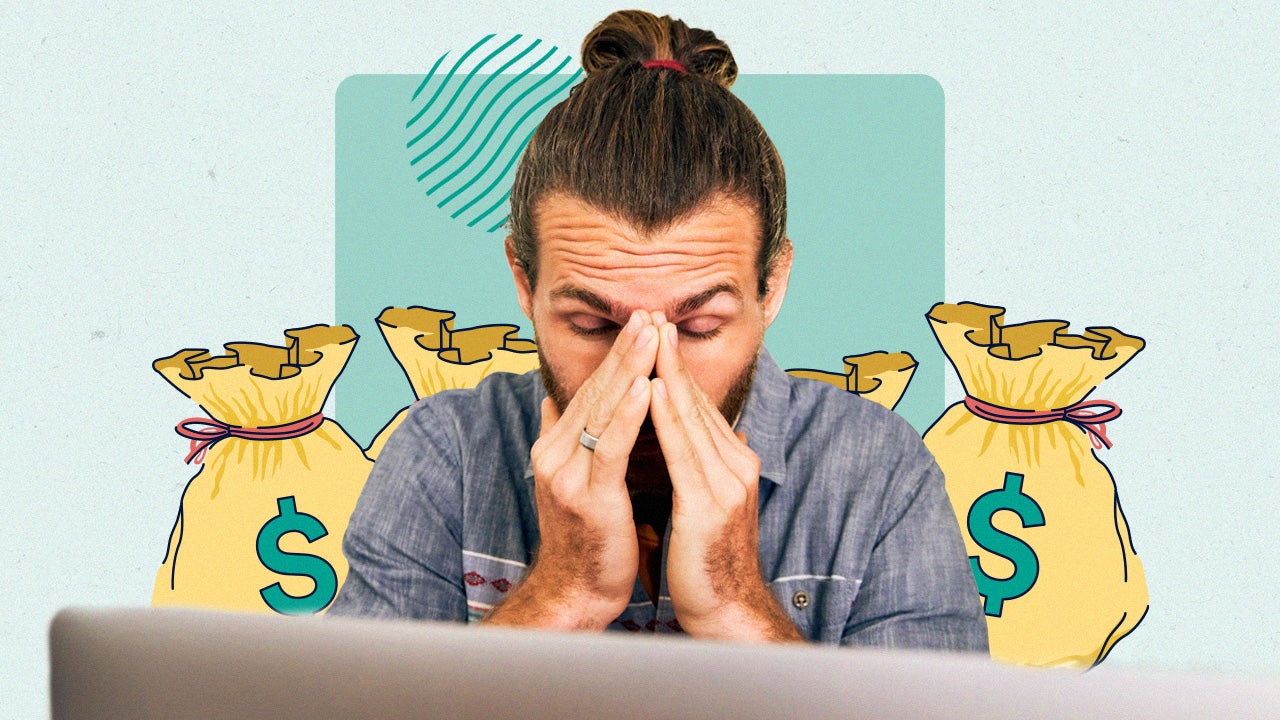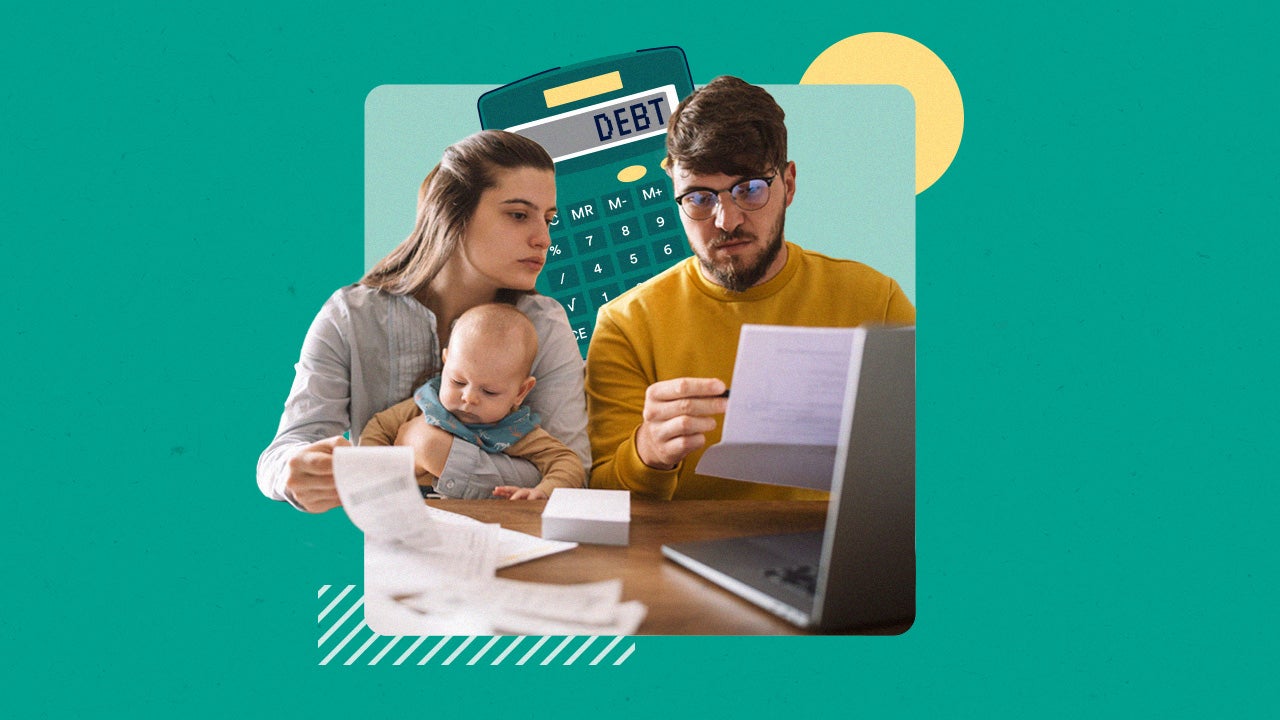How debt can happen to anyone



If you’re an American with debt, you’re not alone.
Household debt reached $17.06 trillion in the second quarter of 2023, according to the Federal Reserve Bank of New York’s Center for Microeconomic Data. Nearly one in two (47 percent) of Americans with credit card debt carry a balance from month to month, with 60 percent carrying debt for more than a year. When paired with high interest rates, consumer debt is higher than ever before.
Credit card debt, student debt, personal loans, auto loans, business loans and mortgages are all a part of life. While debt can seem like a scary and a shameful thing to be avoided, it can’t be further from the truth.
Debt isn’t something to feel guilty about. In fact, it’s a tool that can help you increase your financial, housing and educational opportunities. When it’s temporary and eventually paid off, debt can be a useful thing.
Read on to learn more about debt, how it can happen to anyone, why it isn’t necessarily a bad thing and the options you have when it comes to managing your debt beyond paying it off or filing for bankruptcy.
The big numbers of debt
While debt is a part of life in the United States, it’s no secret that being in debt can impact your mental health. It can also affect how you navigate your finances and fulfill your financial goals.
Take emergency funds, for example. Having an emergency fund is a crucial part of dealing with unexpected expenses and avoiding taking on debt during a crisis.
Ironically, however, debt prevents many borrowers from building that fund. Over a quarter of borrowers who took on student debt (27 percent) say they are putting off building their emergency fund, according to a survey by Bankrate.
At the same time, 43 percent of credit card debt holders said their debt stemmed from an unexpected emergency.
It can feel like a no-win situation.
Debt’s impact doesn’t stop there.
As savings shrink and debt rises, many are growing anxious about their financial wellness. In fact, nearly half of Americans who cited money negatively affects their mental health say debt is the cause.
A survey by National Debt Relief finds people, on average, lose about 200 hours of sleep each year worrying about their debt. In the same survey, 69 percent of respondents said they withdraw from activities and things they love due to their long-term stress.
While these numbers may be concerning, it’s important to keep two things in mind: First, you’re not alone. Even if your debt feels like something to be ashamed of and stressed about, there are many others in the same exact place as you.
Second, while debt is stressful, it isn’t always a bad thing — and there are many ways to get out of it and manage it in a healthy way.
Three big misconceptions around debt
There are many common beliefs around debt that are misunderstood or simply untrue. If you’re taking on debt or paying off debt, understanding what you’re dealing with is crucial.
Here are some of the big myths.
Misconception 1: All debt is bad debt
Debt can seem like a bad thing. Borrowing money obligates you to pay it back, and interest can feel like cash thrown down the drain. This is why some people avoid debt altogether.
If you avoid debt, however, then you’re denying yourself a valuable financial tool when it comes to investing in your home, your life and yourself.
Here’s an example when debt makes sense. Consider business debt. Businesses need seed money to buy equipment and materials to get started. One of the most common ways to do this is with a business loan. While the business does have to pay interest and is obligated to pay off its debt, a loan helps a business get on its feet and start making money. In this case, the loan is a good investment — without it, the business can’t start creating goods or performing services.
This is why financial experts categorize debt into “good” and “bad” debt. Good debt, like a student loan, a business loan or a mortgage, can help you invest in the future and make money beyond what you originally borrowed by leveling up your skills, building your business or helping you earn equity.
Bad debt, on the other hand, doesn’t help you invest in your future, and instead only pays your existing obligations — which is why putting UberEats on your credit card when your bank account is low isn’t really a great idea.
Misconception 2: Being in debt means you’re bad with money
Just because you have a loan doesn’t automatically make you bad at budgeting or an impulse spender.
Debt can happen to anyone, even if you’ve planned your finances carefully. An accident or illness can easily land you in medical debt, and some emergencies can drain your emergency fund faster than you can rebuild it. And, as mentioned above, some kinds of debt can help you build your finances, such as a mortgage allowing you to build equity or a student loan helping you get a degree for a higher-paying job.
While it’s stressful to go through, taking on debt doesn’t mean that you’ve mismanaged your finances or that you don’t deserve help.
Misconception 3: Your only options are to pay off your debt or file for bankruptcy
Paying off debt can feel daunting. Making monthly payments can be a struggle and compounding interest might feel like your progress is being erased.
However, paying off your debt is better than declaring bankruptcy, which means you’ll lose your house or car and watch your credit take a hit. Right?
Not quite.
Paying off your debt or filing for bankruptcy are just two options for managing your debts. Other options can include consolidating your loans, setting up a debt management plan, negotiating a new payment plan with your creditors or getting your debt relieved.
Debt relief in particular has enabled many borrowers to see part or all of their debts discharged, reducing or eliminating their payments altogether. National Debt Relief, for example, negotiates with creditors to settle their client’s debts for less of what they owe — without the need to file for bankruptcy.
Debt is a part of life, but not forever
Debt is a part of the financial landscape in the United States and a key financial tool you shouldn’t run away from. By understanding how to leverage debt to your advantage, you can invest in yourself and your future without stretching your budget thin.
If you are in debt and fear there’s no way of getting out, then there are ways to find help.
Options like refinancing, debt management and settlement can open the door for you to take charge of your debt. Companies like National Debt Relief can connect you to resources for managing your monthly payments, improving your financial health and more.
A healthy attitude around debt can not only give you an understanding about whether a loan is a good investment, but also help you take charge of your financial and mental health when it comes time to pay it back. By doing this, you’re one step closer to paying off your debt and achieving true financial freedom.
What next?
Debt is a common occurrence in the United States, and can have a large impact on a borrower’s finances and mental health. While debt can be scary, understanding the differences between good debt and bad debt can help you make the right financial decisions.
If you want to learn more about managing your finances, mental health and debt repayment plan, check out Bankrate and National Debt Relief’s ongoing article series about all things debt. Watch this space for tips, tricks and exclusive stories from readers like you and their debt repayment journeys.
Why we ask for feedback Your feedback helps us improve our content and services. It takes less than a minute to complete.
Your responses are anonymous and will only be used for improving our website.






